
So, this is it: the top 10 films of 2023. If you’ve checked out our previous lists – if not, click here to find #30-21, and here for #20-11 – then you’ll know that the films about to be revealed here tower over what have already been damn fine entries from the past twelve months.
But which ones are fortunate enough for this honour? Read on to find out… (or use the hyperlinks below to jump to whichever number on the list)
10 | 9 | 8 | 7 | 6 | 5 | 4 | 3 | 2 | 1
10 – Godzilla Minus One (dir. Takashi Yamazaki)
Japanese cinema had a massive year, with the return of Hayao Miyazaki and Studio Ghibli with The Boy and the Heron, and Wim Wenders swooping in to deliver the country’s strongest Oscar contender in years with Perfect Days (out in the UK early next year). However, not even Miyazaki could be as massive as the mighty return of cinema’s most famous giant monster, in an all-out historical epic that breathed new atomic breath into its titular kaiju.
Not only was Godzilla himself a legitimate and absolutely terrifying threat, brought to life by some incredible visual effects that highlighted just how intimidating the towering Toho creature could be, but unlike most other Godzilla movies – even the ones in the unrelated American-backed MonsterVerse series – the human characters were deeply complex and genuinely memorable, ensuring that your attention was on something compelling when the big guy wasn’t around. Factor in some incredibly emotional social commentary about post-war Japan, as well as some truly intense fight sequences where you’re completely invested in both the action and the people that were participating in them, and you had yourself a Godzilla movie that checked all the boxes and left you completely and utterly satisfied even if monster flicks aren’t your bag.
Not since his debut 70 years ago has Godzilla been this acclaimed, and once you see the absolute might of this movie, you’ll fully understand why…
Click here to find where you can watch Godzilla Minus One!
9 – Are You There God? It’s Me, Margaret (dir. Kelly Fremon Craig)
In a far different way to How to Have Sex, writer-director Kelly Fremon Craig’s adaptation of Judy Blume’s classic coming-of-age novel is a must-watch for anyone on the cusp of adolescence. Specifically, anyone who’s ever fretted or was curious about the natural ways in which young women’s bodies operated, and are looking for reassurance that what they’re going through, along with most other side-effects of puberty, are completely and utterly okay.
The filmmaker brought plenty of love and joy to exploring its titular young protagonist as she went through physical and emotional changes in 70s America, in addition to exploring her own religious stance that had caused some divide and strife in her family, particularly a wonderful Rachel McAdams as her loving mother. As in Blume’s original story, things such as menstruation, religion and even bust sizes were treated with the utmost of care and respect, in ways that undoubtedly appealed to a similarly aged audience in a market where such things are still considered taboo. However, it was also very funny at times, and also incredibly sweet as it left you on a warm feeling that showed just how much this story is still admired, and even relevant, fifty years after its original publication.
It was an absolute godsend for anyone who’d ever wondered about their changing bodies, but were too afraid to ask…
Click here to find where you can watch Are You There God? It’s Me, Margaret!
8 – John Wick: Chapter 4 (dir. Chad Stahelski)
Keanu Reeves shooting and killing anyone in sight has been a recipe for delight ever since the John Wick franchise began, but everything was turned all the way up for this fourth and final (?) instalment that truly brought out the sheer epicness that this series had only previously hinted at.
As Reeves’ Wick found himself up against plenty of new foes, from Bill Skarsgård as the snootiest Frenchman in cinema this year, to Scott Adkins kicking all sorts of ass in an enlarged body suit, he delivered all sorts of merciless pain through some incredibly choreographed action that made even falling down several flights of stairs look amazing. With cinematographer Dan Laustsen also on-board, this was also by far the best-looking movie in the entire series, as the camera lingered on some truly gorgeous neon-drenched shots, and in one standout sequence directly above the action as it moves from room to room with Wick bodying just about everyone with gun that shoot literal explosions.
As for how it ends, it seems definitive but as we all know, anything could happen in the future (excluding next year’s spin-off Ballerina) – though if this is indeed the final entry, then yeah, I’m thinking it’s a great place to stop…
Click here to find where you can watch John Wick: Chapter 4!
7 – Rye Lane (dir. Raine Allen Miller)
The rom-com formula is easy to work with, but so much harder to effectively pull off. Thankfully, debut filmmaker Raine Allen Miller found numerous ways to make the usual conventions feel fresh once more, in an absolutely charming feature that gave audiences new reasons to find love at the movies.
The charismatic pairing of on-screen couple David Jonsson and Vivian Oparah was inspired enough, but Miller went even further by giving her film a unique aesthetic that was certainly heightened but also brought out the unexpected wonders of South London, positioning her as a modern successor to Richard Curtis (look out, too, for a quick but memorable cameo from a Curtis regular). Filled with laughs, style and, of course, plenty of heart, it was a rom-com that certainly went through the expected motions – especially in the third act – but did so much to liven up the tired tropes that it really felt as though you hadn’t seen much of it before, and did what few other rom-coms this year could do and make you actually invested in a formula that’s as old as film itself.
Short, sweet, and visionary in all the right ways, it’s the film that dared to make you fall in love with rom-coms all over again…
Click here to find where you can watch Rye Lane!
6 – Killers of the Flower Moon (dir. Martin Scorsese)
Few end-of-year lists would be complete without at least a mention of Martin Scorsese, who with his expansive and endlessly impressive historical epic reminded everyone of why exactly he’s considered one of the greatest filmmakers alive.
In many ways his first-ever Western, Scorsese spent the gargantuan three-and-a-half-hour runtime going into extensively researched detail about the brutal murders of wealthy Osage residents in 1920s Oklahoma, and the resulting investigation by the then-new FBI. A key focus was on the murderers themselves – particularly Leonardo DiCaprio’s spectacularly dumb Ernest Burkhart and his conniving uncle William Hale, played by a menacing Robert De Niro – which generated some backlash from a number of Native viewers, especially as these White characters took attention away from Lily Gladstone’s mesmerising Osage member Lily, but the film really got underneath their skin and exposed the greed and racial hatred that drove them to commit these horrific crimes, at the expense of their own humanity. The extended character study complimented the incredibly crafted production which paid careful homage to the tribe that was brutalised during this terrifying period, all the way up to one of the year’s most inspired endings which was perhaps the most creative way yet of surmising what became of these real-life people.
Far from comfortable viewing but absolutely essential for those who love the language of cinema as much as Scorsese does, Killers of the Flower Moon will make you glad you sat all the way through its lengthy runtime…
Click here to find where you can watch Killers of the Flower Moon!
5 – Past Lives (dir. Celine Song)
Not that many filmmaking debuts this year came with the feeling that its first-time director/writer was already a seasoned pro, but Celine Song managed to blow every expectation out of the water with a tightly focused and extremely well-paced romantic drama that felt as though it were made by someone with years of prior experience.
Song’s masterful multi-year saga charted two childhood friends in South Korea who, despite their separation after one of them migrates to the Americas, still had immense feelings for one another, even when life continuously got in the way. The filmmaker showed their initial progress whether it included meeting and marrying other people or embarking on national service, but when paired together also brought out their inner children, just as full of life and playful as they were as kids. It was a beautifully heartbreaking piece that showed how life has funny ways of pairing people together, whether it’s in this life or the next (or even the one right before), and with some incredibly nuanced lead turns by Greta Lee and Teo Yoo as our helpless romantics, Song managed to capture their raw humanity in powerfully emotional ways that often left you on the verge of tears.
Quietly devastating yet resoundingly hopeful at the same time, this was a true experience that showed the raw power of cinematic romance, no matter where you are in the world…
Click here to find where you can watch Past Lives!
4 – Scrapper (dir. Charlotte Regan)
A story about a young girl living alone after the death of her mother, only to be visited by her biological father, sounds like everything that typical kitchen-sink dramas are made for, but writer-director Charlotte Regan’s happy-go-lucky debut neatly avoided easy melodrama with a joyous and optimistic approach that wore its beating heart proudly on its sleeve.
With an energetic lead turn by young actor Lola Campbell leading the way, Regan lent plenty of eccentric style to a portrait of working-class life that never felt pandering or patronising, incorporating everything from faux-documentary interviews to even Bourne Ultimatum-style camerawork during some chase scenes into a narrative that focused on the utter sweetness but also the underlying heartbreak of the main situation. There were plenty of laughs to be had as Campbell swapped plenty of lovable banter with co-stars Harris Dickinson and fellow young standout Alin Uzun, as well as some profound character drama that didn’t ignore the heartbreaking impact of grief upon young children, which was beautifully handled and intriguingly shot by cinematographer Molly Manning Walker (yes, the How to Have Sex director).
Utterly delightful in every way possible, this was a true British gem that signalled the beginning of long and plentiful careers for both its filmmaker and its scrappy young star…
Click here to find where you can watch Scrapper!
3 – Barbie (dir. Greta Gerwig)
Well, you knew this one was coming – and how could it not? By far the year’s biggest phenomenon, with its widespread acclaim by critics and its $1.4 billion worldwide gross being the biggest in Warner Bros history, and even reports of global supplies of pink paint being depleted due to its excessive use on this production, director and co-writer Greta Gerwig truly struck pink-tinted gold with her original take on the classic Mattel doll. But, on top of all that, it was also genuinely a great film that was smart, funny, and deeply layered in overwhelming amounts.
Gerwig and co-writer Noah Baumbach could have so easily taken a more conventional route by just having live-action Barbie and Ken – played hilariously and winningly by Margot Robbie and Ryan Gosling respectively – go through all the motions of a typical movie about an existing IP. Instead, they took Barbie and her influence to the next level, by exploring not just the doll’s effect on society and the unrealistic beauty standards she unwittingly placed on young women, but tackled much more pressing matters such as patriarchy, misogyny, and just about every double standard that women in general have to face in the world (encapsulated in a showstopping monologue by America Ferrera). It certainly wasn’t subtle, but nothing about Barbie was, and that’s exactly why it has endured: it was Gerwig bringing her own insightful imagination to an inanimate plaything in ways that happened to speak to the rest of the world, and did not hold back on either her unique authorial voice or her bright display of the best kind of silliness.
Barbie became a phenomenon for a reason, and going by how much it has already embedded itself within popular culture, from its bopping soundtrack to some already iconic lines, it has certainly become a mainstay in everyone’s mojo dojo casa house…
Click here to find where you can watch Barbie!
2 – Spider-Man: Across the Spider-Verse (dirs. Joaquim Dos Santos, Kemp Powers and Justin K. Thompson)
It’s one thing to follow up one of the most stylish animated films of the past decade with a sequel that is even better than the original. But it’s another thing entirely to raise the bar so high that it sets an entirely new bar for both animation and storytelling as a whole, which was one of the many things that this incredible piece of animation did so phenomenally well.
A follow-up that deserves to be mentioned in the company of The Empire Strikes Back, The Dark Knight and The Godfather Part II which all in some way outdo their predecessors, the multiversal story of Miles Morales continued in glorious fashion as the web-slinger explored several different universes and, of course, infinite new Spider-Beings, from cowboy versions to punk-rock variants to even a car with the name Peter Parkedcar – all of which are as hilarious and unique as they sound. On top of the stellar animation, which continues to be just as visually dazzling as well as extremely innovative with its blending of numerous different styles, the connection between Morales and fellow Spider-Person Gwen Stacy deepened significantly with both of them facing new personal challenges that made them such well-rounded characters who you could spend sequel after sequel with and never get bored. With compelling dramatic stakes, some hilarious fast-paced gags, a memorable villain in the form of Jason Schwartzman’s The Spot, and a vibing soundtrack that is my personal favourite of the year, Spider-Man: Across the Spider-Verse was simply an astonishing work of art that deserves the world, and other worlds beyond ours.
It just makes the wait for Beyond the Spider-Verse all the more difficult, especially with where this movie decides to stop…
Click here to find where you can watch Spider-Man: Across the Spider-Verse!
1 – Oppenheimer (dir. Christopher Nolan)
It’s a bit of a no-brainer that Christopher Nolan’s epic biopic about the life and times of nuclear physicist J. Robert Oppenheimer ended up being, in my opinion, the best film of 2023. After all, it formed the infamous Barbenheimer double-bill that drew audiences out in droves this summer, resulting in a near $1 billion worldwide gross – which is frankly phenomenal for something that’s not part of a franchise or based on an existing IP (if you don’t count the non-fiction book it was adapted from) – and is currently the frontrunner for some of the top prizes at next year’s Oscars.
But perhaps the most fascinating part to Oppenheimer’s success, at least to me, is the fact that, when you break it down to its barest atoms, it is a three-hour film that is primarily made up of people talking at length in rooms of various sizes. In any other world, or at least by any other filmmaker, this could have gone very, very wrong with most audiences finding it tedious and even dull to sit through, since there’s very little action and lots of dense dialogue filling up that precious runtime. Under Nolan, though, it’s absolutely riveting and heavily cinematic stuff, for not only is the dialogue itself rather excellent, always keeping you hooked even when you have absolutely no idea about what the characters are actually talking about, but it is exceptionally well-paced with editor Jennifer Lame (who is all but a lock to win herself an Editing Oscar in a few months’ time) spacing out each scene without them ever feeling like they’re going on too long or are in need of a serious trim.
It is a perfectly constructed film, all told with Nolan’s usual incorporation of non-linear storytelling that here presents two very different points of view to the central figure’s story: there’s Oppenheimer himself, played with a steely and haunted gaze by Cillian Murphy, and then there’s Robert Downey Jr. as his vindictive nemesis Lewis Strauss. The latter, which gifts the former Marvel star with one of the best roles of his career, sees the titular scientist as an arrogant blowhard whose moral stance can be exploited to rid him of his influence amidst the Red Scare in post-war America. More prominently, though, we see inside Oppenheimer’s mind as he envisions brilliant but ultimately destructive innovations in science that he can only witness as his work on the Manhattan Project is carelessly manhandled by the powers that be. Nolan’s direction and writing quite brilliantly steers both of these differing perspectives to a horrifying truth that makes Oppenheimer’s story and his ultimate legacy a deeply unsettling reminder of how bad things are most likely about to get in our current world.
I said this in my original review, and I’ll say it again here: I truly believe that Oppenheimer is secretly Christopher Nolan’s first true horror film. By that, I mean that it digs deep into the very real evils in this world, in this case being the constant threat of nuclear war, and shows the world just how scary such unchecked power can be, especially when in the wrong hands. Nolan makes the audience feel deeply uncomfortable as Murphy’s Oppenheimer feels immense guilt over having birthed the nuclear bomb into existence, and must now live with the horrifying consequences of what he has created, even if it means martyrising himself in a kangaroo court of board members after he’s accused of having Communist sympathies. It’s deeply disturbing stuff, and Nolan is a master at giving off such horrifying feelings while also telling people about this very important but deeply flawed figure.
It’s remarkable, utterly remarkable, how Christopher Nolan has managed to both mine an exciting and utterly cinematic blockbuster out of a three-hour movie of people talking in rooms, and elicit more emotions of horror and suspense than even some of the more traditional horror movies to have come out this year. That’s ultimately why I feel this movie is 2023’s defining feature, for it explores the past to analyse an extremely worrying future, with what we do in the present mattering more than ever…
Click here to find where you can watch Oppenheimer!
And that’s it – our Best Films of 2023 list is finally over!
Thank you for helping to make this another stellar year for Film Feeder, with plenty more awesomeness to come in 2024 – as well as some very exciting new changes that you’ll have to come back for in the New Year…
Want to see our past menus?
Want to find a specific film?
Search for it in the box below:



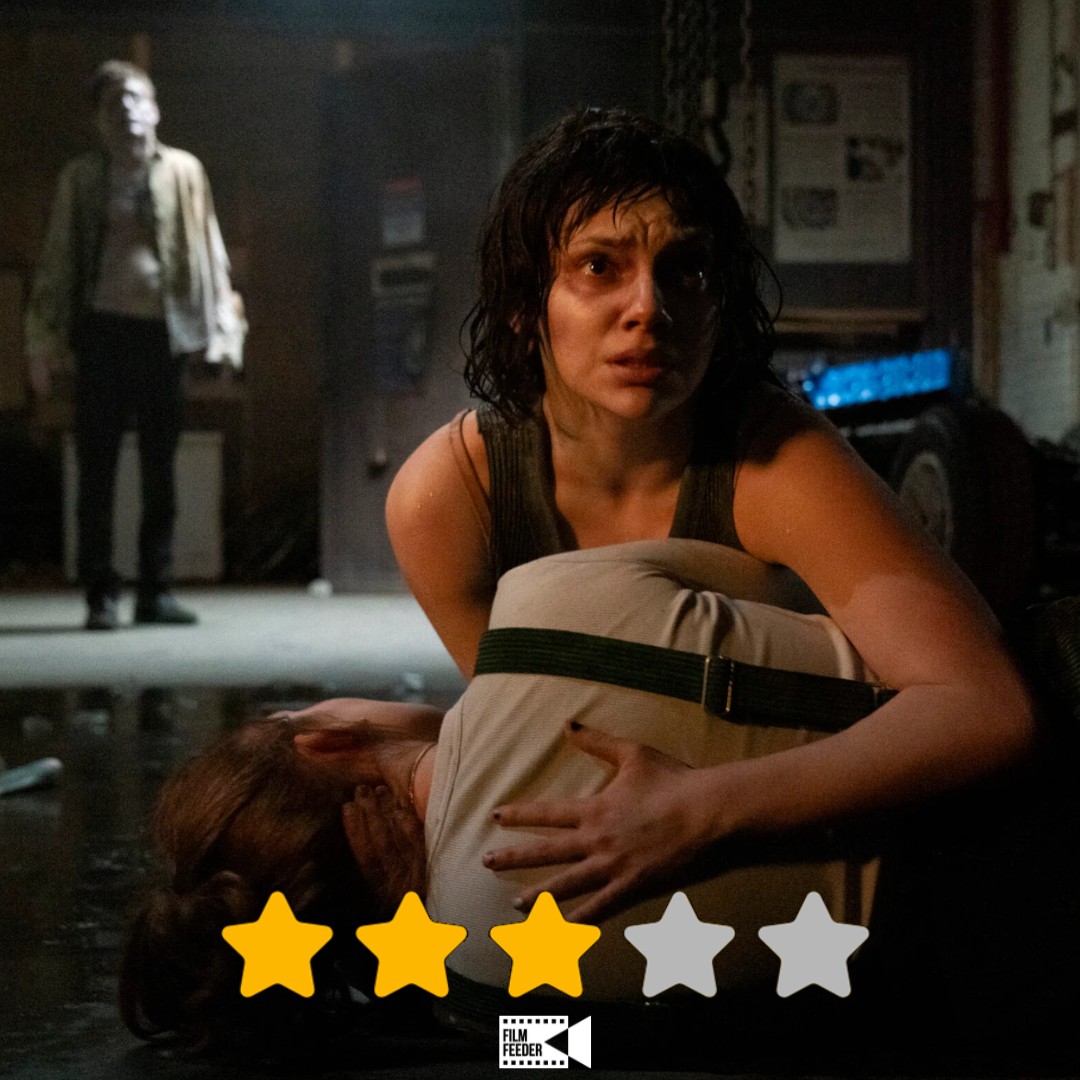
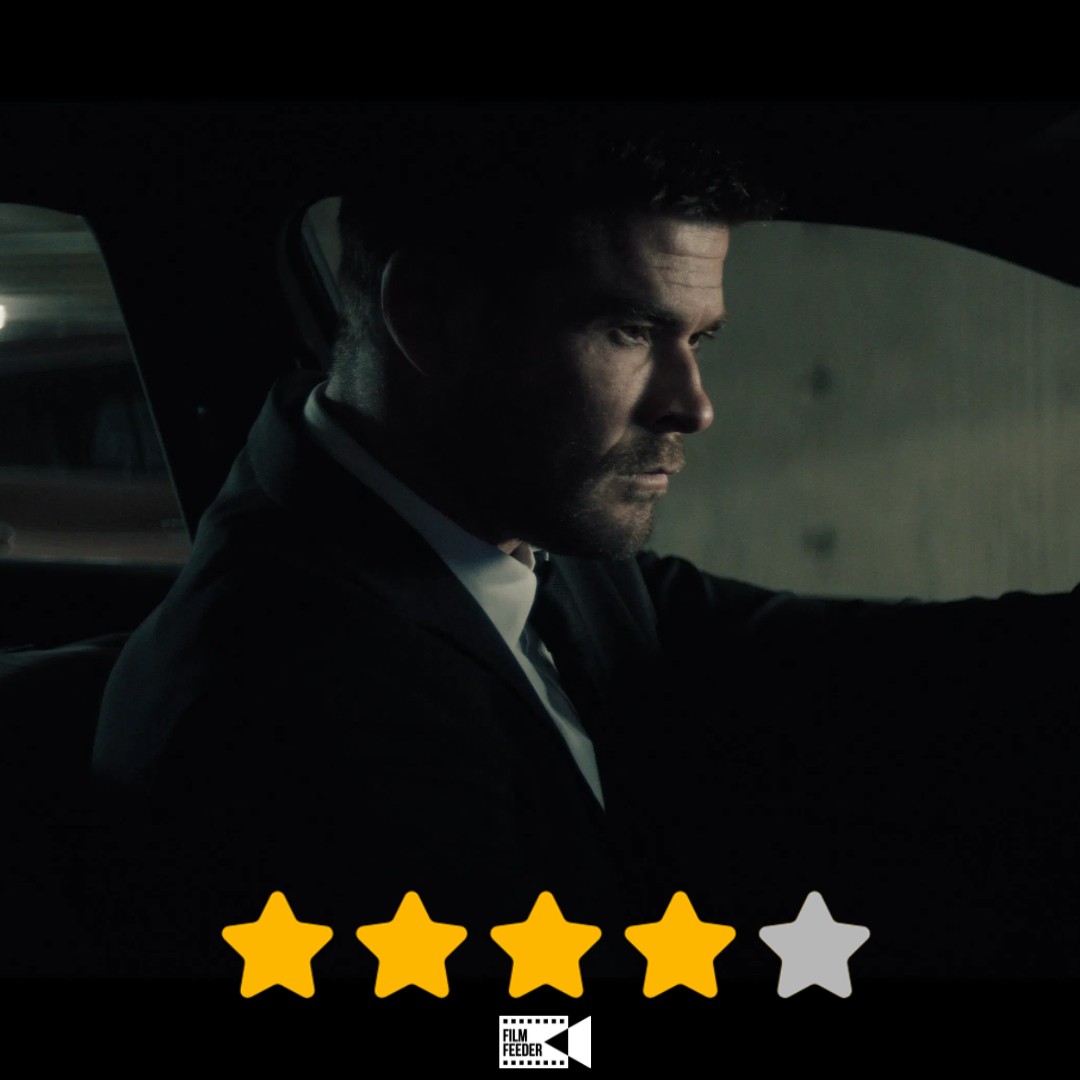
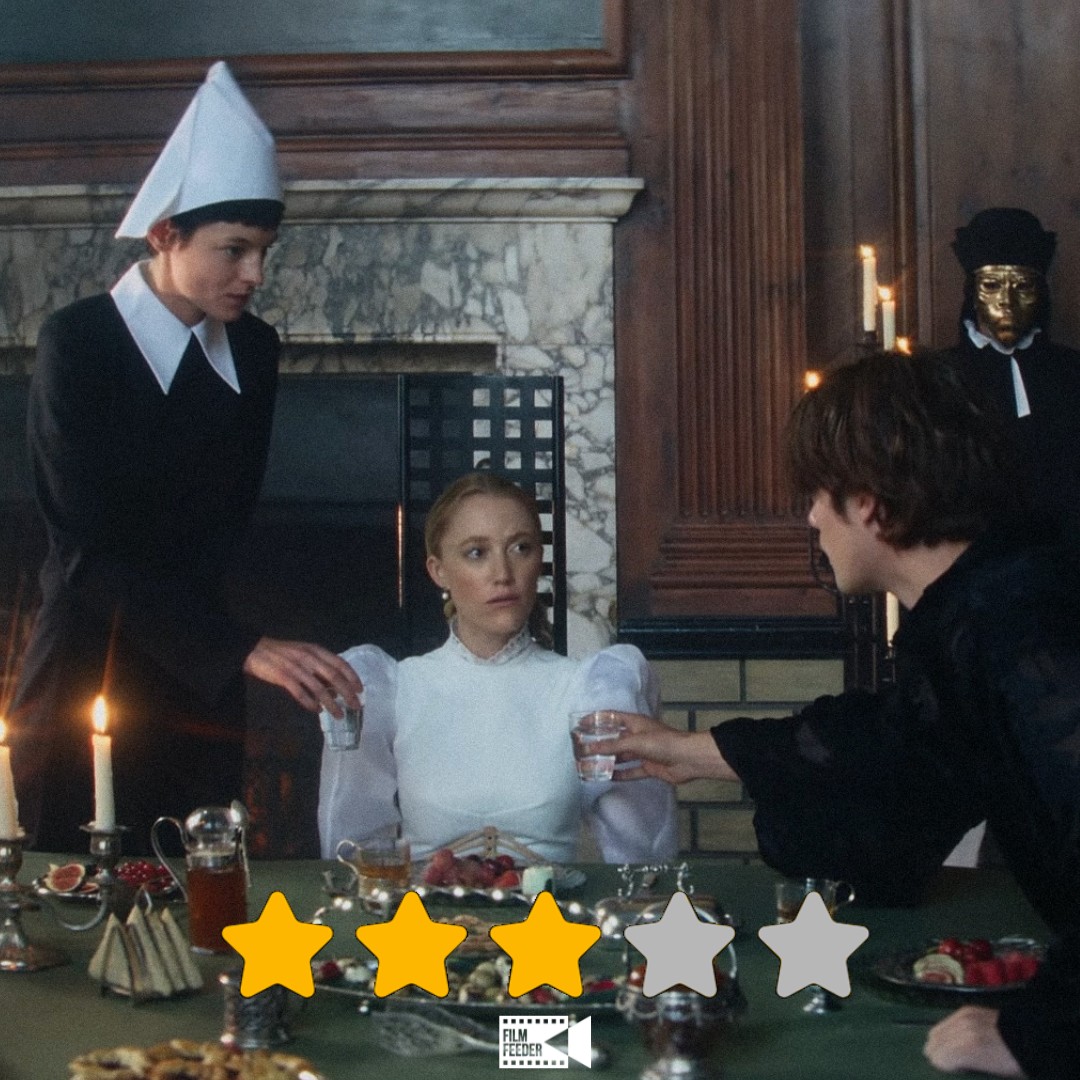

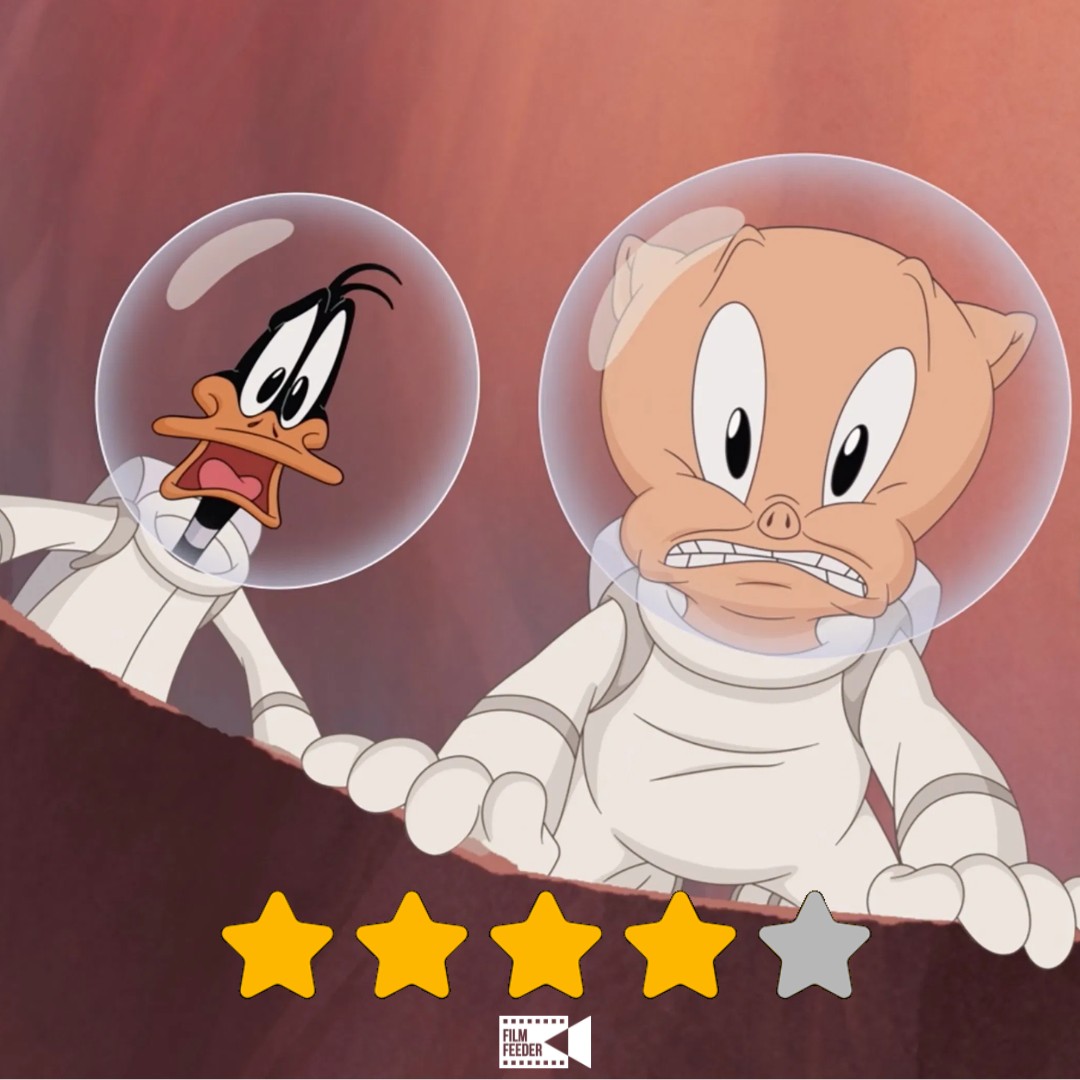
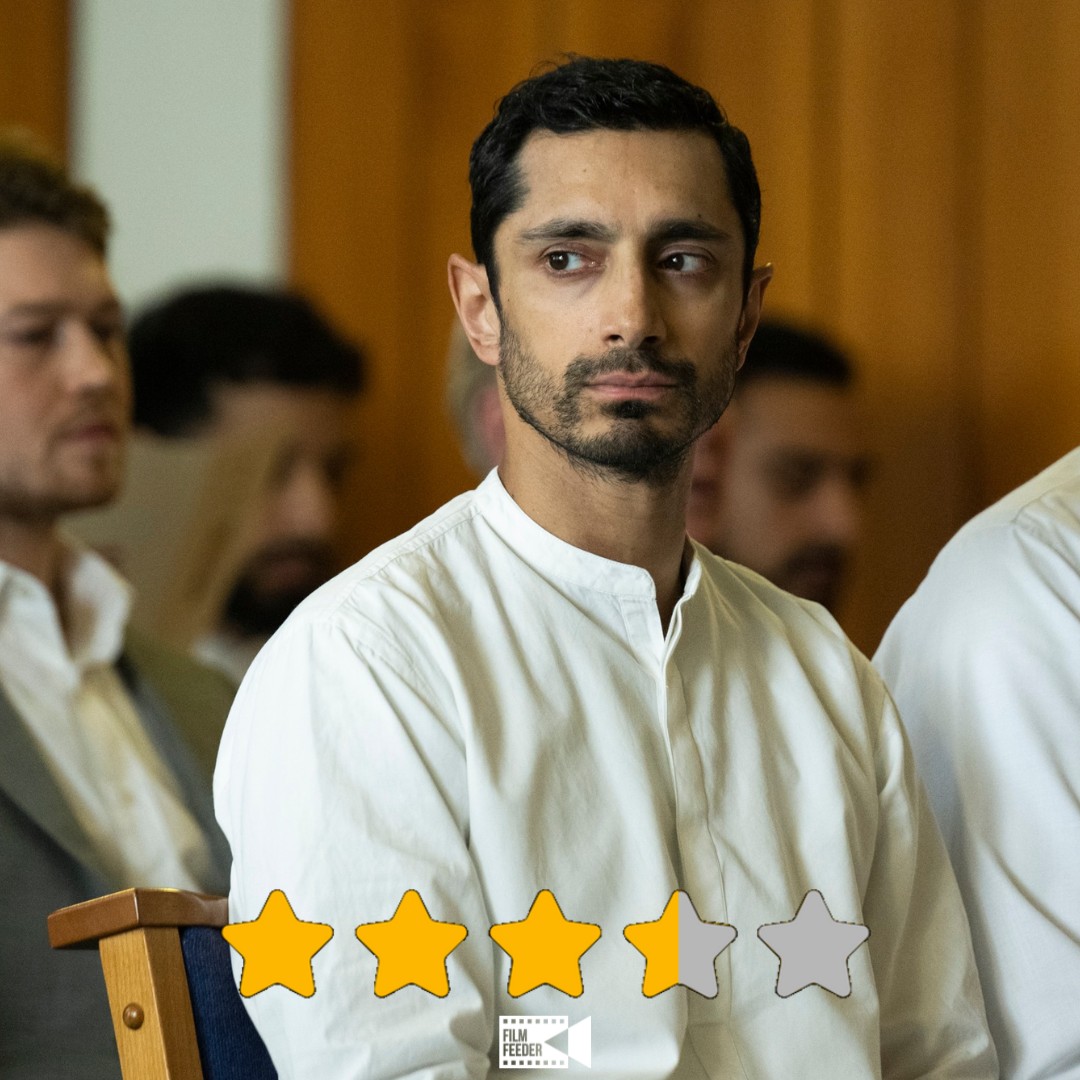
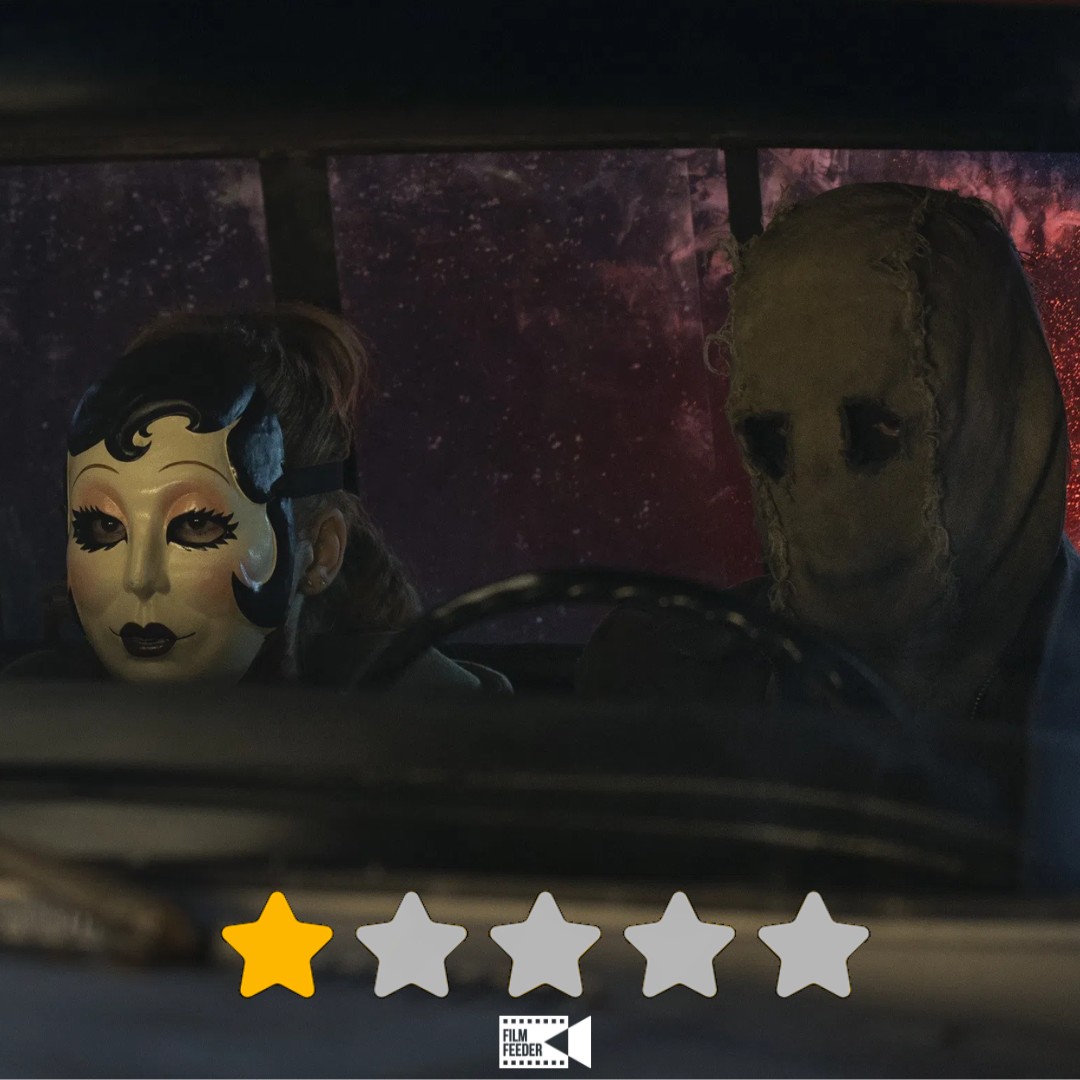


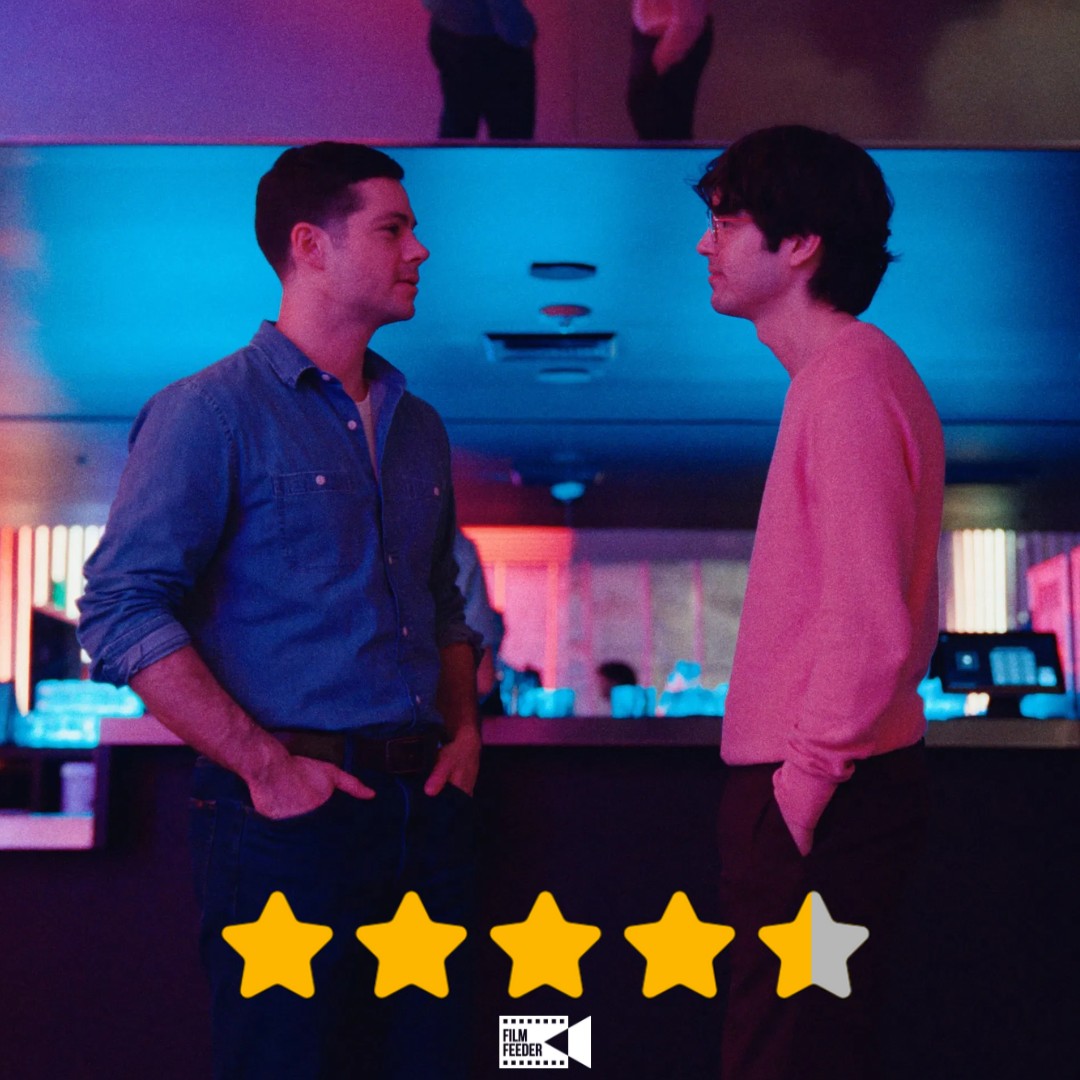
0 Comments